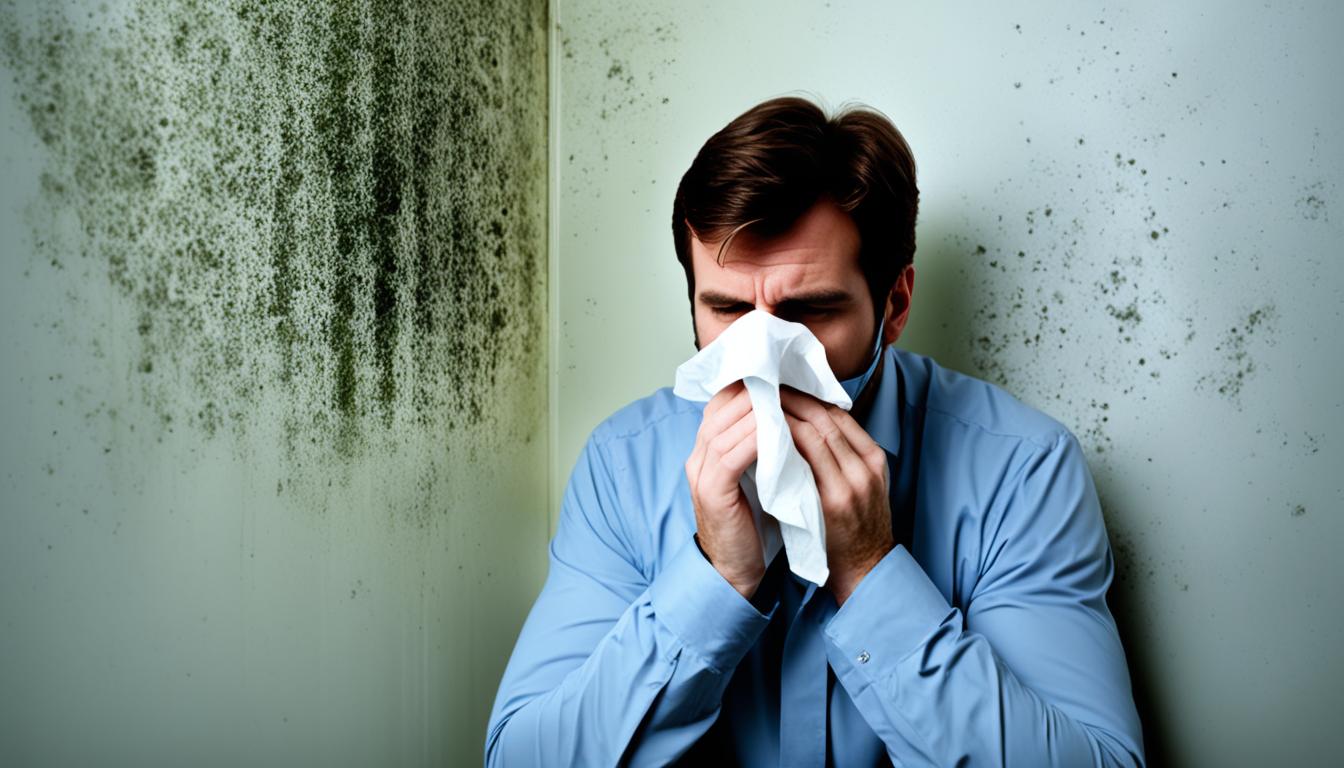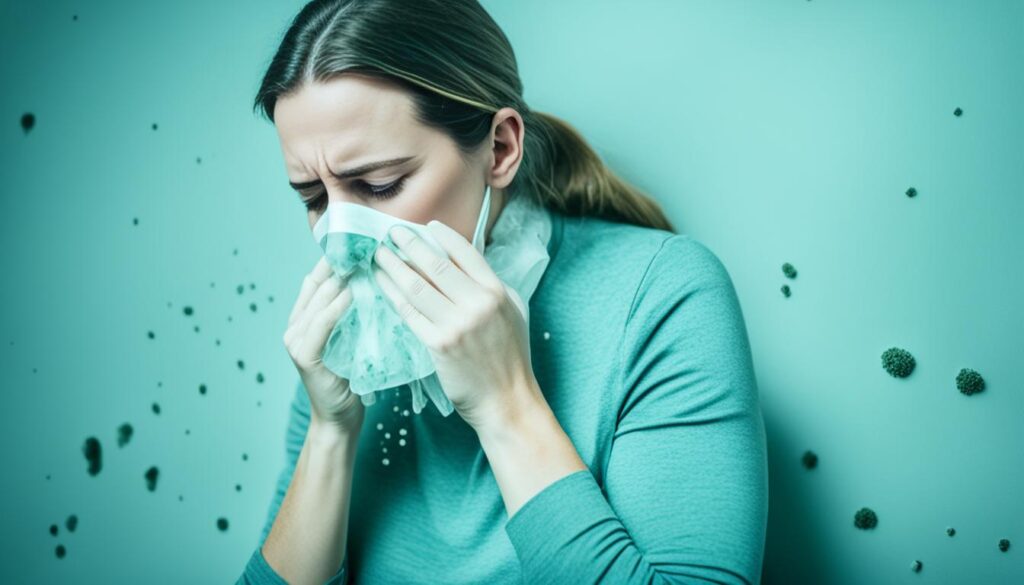
Health Impacts of Mold Exposure – Risks & Effects
Mold exposure is a serious concern when it comes to your health. Understanding the risks and effects of mold is essential for safeguarding your well-being. Mold can be found in various places, both indoors and outdoors, and it thrives in environments with moisture and organic materials.
When mold spores are released into the air, they can easily be inhaled, potentially leading to a range of health issues. The effects of mold can vary depending on individual sensitivity, the type of mold, and the duration of exposure.
Key Takeaways:
- Mold exposure can cause allergic reactions and respiratory problems.
- Long-term exposure to mold can lead to chronic health conditions.
- Mold can worsen existing allergies or asthma.
- Mold prevention and remediation are crucial for a healthy living environment.
- Consulting professionals for mold assessment and remediation is recommended.
What Does Mold Do to You?
When it comes to the impact of mold on your health, understanding the specific ways it can affect you is crucial. Mold spores, which are tiny particles released by mold, can have various detrimental effects on your overall well-being.
Allergic Reactions and Respiratory Problems
Mold spores can act as potent allergens, triggering allergic reactions in sensitive individuals. These allergic reactions may manifest as nasal congestion, sneezing, watery eyes, itching, or skin rashes. Additionally, some people may experience more severe allergy symptoms, such as difficulty breathing and asthma attacks.
Moreover, exposure to mold can lead to respiratory problems, especially in individuals with pre-existing respiratory conditions. Prolonged exposure to mold spores can irritate the respiratory system, causing coughing, wheezing, chest tightness, and persistent respiratory infections.
Aggravation of Existing Health Issues
For those already suffering from allergies, asthma, or other respiratory conditions, mold exposure can exacerbate their symptoms and make the conditions more challenging to manage. Mold spores can intensify the inflammation in the airways, making breathing more difficult and increasing the frequency and severity of symptoms.
Chronic Health Conditions
Long-term exposure to mold can lead to the development of chronic health conditions. It has been linked to the development or worsening of conditions such as sinusitis, bronchitis, pneumonia, and other respiratory infections. Mold can also have a negative impact on the immune system, potentially impairing its ability to defend against infections and other illnesses.
Furthermore, certain types of mold produce mycotoxins, which are toxic substances. Exposure to mycotoxins can have additional health effects, including neurological symptoms, digestive issues, skin irritation, and immune system dysfunction.
It is important to be aware of these potential dangers and prioritize mold prevention and remediation to safeguard your health and well-being.

| Type of Health Impact | Effects |
|---|---|
| Allergic Reactions | Nasal congestion, sneezing, watery eyes, itching, skin rashes |
| Respiratory Problems | Coughing, wheezing, chest tightness, persistent respiratory infections |
| Aggravation of Existing Health Issues | Increased symptoms, difficulty managing allergies and asthma |
| Chronic Health Conditions | Sinusitis, bronchitis, pneumonia, compromised immune system |
| Mycotoxin Exposure | Neurological symptoms, digestive issues, skin irritation, immune system dysfunction |
Conclusion
In conclusion, mold exposure can have severe impacts on your health. The presence of mold in your living or working environment can trigger allergic reactions, worsen respiratory conditions, and even lead to chronic health problems. It is crucial to take proactive measures to prevent and remediate mold to safeguard your well-being.
If you suspect mold growth in your home or workplace, it is advisable to seek professional assistance. Companies like Fix Mold Miami specialize in conducting thorough assessments and implementing appropriate actions to ensure a healthy living environment. They have the expertise and equipment needed to identify and address mold issues effectively.
Remember, protecting yourself from the negative effects of mold goes beyond simple cleaning. Proper mold prevention and remediation require a comprehensive approach that involves identifying the root cause of moisture, addressing any water leaks or dampness, and implementing proper ventilation and humidity control measures.
By prioritizing mold prevention and remediation, you can create a safe and healthy environment for yourself and your loved ones. Don’t underestimate the potential risks of mold exposure – take action today to ensure a mold-free space and safeguard your health.




